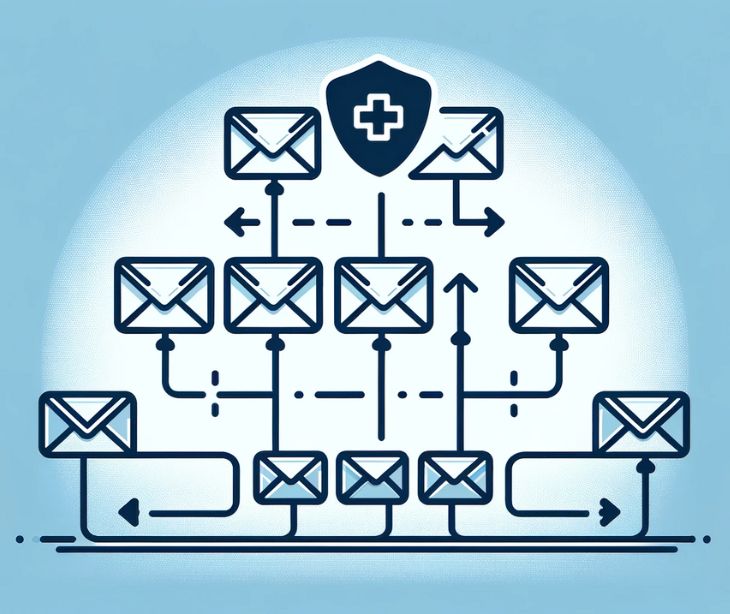
The patient journey in healthcare is the process that a patient goes through from the moment they first seek medical attention to the time they are fully recovered or their condition is stabilized.
Understanding the patient journey is essential for healthcare professionals, as it allows them to provide better care and improve the overall patient experience.
This post will expound on the distinct stages of the patient journey.
See related: Using email to personalize messaging during the patient journey
Pre-appointment
The first stage of the patient journey is the pre-appointment. This is the stage where a patient first becomes aware of their need for healthcare services and starts researching potential providers.
During this stage, patients may be experiencing symptoms that are causing them concern, or they may have been referred to a healthcare professional by another practitioner.
Scheduling and appointment
This is the stage where a patient schedules an appointment with a healthcare provider and may receive pre-appointment instructions. HIPAA compliant email can a useful solution during this stage.
Consultation
This is the stage where the patient meets with the healthcare provider to discuss their condition and treatment options. The initial consultation is an opportunity for the healthcare professional to gather information about the patient’s symptoms, medical history, and overall health status. This information will be used to make a diagnosis and develop a treatment plan.
Diagnosis and treatment
This is the stage where the patient receives a diagnosis and begins treatment. This is when a healthcare professional conducts tests and procedures to confirm or rule out a diagnosis. This may include lab tests, imaging studies, or other diagnostic procedures.
During this stage, patients may feel anxious or uncertain as they wait for test results. It’s important for healthcare professionals to keep patients informed and provide support during this time. This is another key stage where a solution like Paubox Email Suite can be beneficial for both the patient and provider.
This stage is also when a patient begins to receive treatment for their condition. The type of treatment will depend on the diagnosis and may include medication, therapy, or surgery. During this stage, patients may have to make significant lifestyle changes, such as starting a new medication regimen or undergoing surgery. This can be a challenging time for patients, and healthcare professionals should provide support and guidance to help patients navigate this stage of their journey.
Recovery and follow-up
This is the stage where the patient recovers from their condition or treatment and may have follow-up appointments or check-ins with their healthcare provider.
Ideally, this is when a patient’s condition begins to improve and they begin to return to their normal activities. Recovery can be a slow process, and patients may experience setbacks or complications. During this stage, healthcare professionals should monitor patients closely and provide ongoing support and care.
Post-treatment
This is the stage where the patient completes their treatment and may continue to receive follow-up care or support. A patient’s condition should be stabilized by this point, such that they are able to manage themselves with minimal intervention.
Patients may still need to take medication or attend follow-up appointments, but their overall health has improved. During this stage, healthcare professionals should continue to provide support and guidance to help patients maintain their health and prevent complications.
See related: Personalized email marketing in healthcare
Conclusion
In conclusion, understanding the patient journey in healthcare is essential for healthcare professionals, as it allows them to provide better care and improve the overall patient experience.
It’s important for healthcare professionals to be aware of the different stages of the patient journey and the challenges that patients may face at each stage.
By providing support and guidance, healthcare professionals can help patients navigate the healthcare system and improve their overall health outcomes.
Subscribe to Paubox Weekly
Every Friday we'll bring you the most important news from Paubox. Our aim is to make you smarter, faster.

 Hoala Greevy
Hoala Greevy


